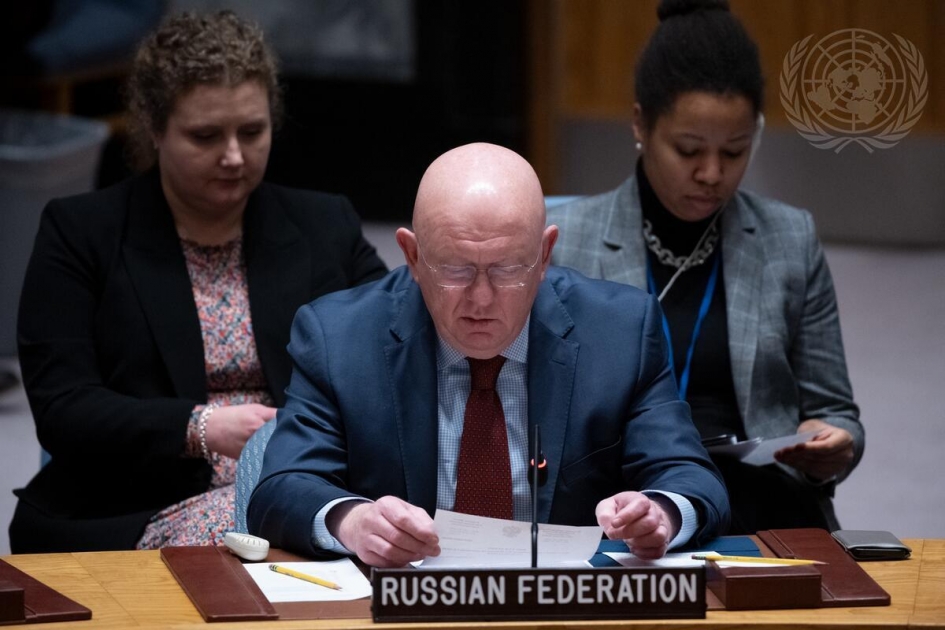Statement by Permanent Representative Vassily Nebenzia at UNSC briefing on UN peacekeeping operations by police commissioners
Mr.President,
We thank the briefers for their insights. In the person of police commissioners who are present here today, we extend our appreciation to all police peacekeepers for their dedicated service in maintaining peace and security in complex conflict situations.
Police components take a special place in UN peacekeeping efforts. Depending on the mandate of a mission, the scope of Blue Berets' activities ranges from advisory support for the local counterparts to full-fledged community policing.
Most peacekeeping missions are deployed in countries where national law enforcement agencies have been significantly weakened or even made non-existent. In such circumstances, criminal problems are multiplied by organized crime, human trafficking, drug trafficking, sexual violence and violence against children. So UN police officers who are better prepared for such circumstances can make a significant contribution to the critical task of protecting civilians in the face of immediate security threats. They can also provide assistance to national law enforcement bodies or even substitute for them on a temporary basis. In doing so, it is important to avoid situations where years-long presence of a mission may lead to a replacement by UN police of local police efforts.
In that regard, another important task that Blue Berets have successfully carried out is assistance with post-conflict reform of law enforcement and improving the national capacity of host states. It is all about transfer of expertise, setting up operations, and personnel training. The more effectively this is done, the faster national forces take over the responsibility for law enforcement.
Particular attention should be paid to ensuring that, after the withdrawal of a peacekeeping mission, national law enforcement capacity should by no means degrade or deteriorate. To that end, while a peacekeeping mission is still deployed, it is necessary to build on the experience of other peacekeeping operations, the specific conditions of the host state and factors that may weaken the established infrastructure. With that in mind, it should be ensured that the revitalized capabilities in the area of law enforcement and rule of law are made sustainable and long-lasting.
Mr.President,
The Blue Berets is a face of peacekeeping, as police officers are the ones who primarily interact with the population. The perception of a mission as a whole largely depends on its ability to build effective communication with local authorities and residents, to ensure that cultural and national context, as well as possible ethnic, religious and other contradictions, are taken into account. Women police officers can play an immense role in these efforts. However, the focus should not be on achieving gender-related benchmarks, but rather on the effective implementation of mandated tasks, relevant circumstances of deployment and assessment of the security situation. In addition, the principle of broad geographical representation should be strictly observed when deploying women to UN peacekeeping missions, including in senior positions.
There is no doubt that in each particular mission the UN police plays an important role (within their mandate) in the efforts to prevent recurrence of conflict. However, it is difficult to envision a possible contribution of police peacekeepers to conflict prevention and mediation efforts of the Secretary-General before a crisis begins and a mission is deployed.
We are convinced that discussions on all aspects of peacekeeping, including police issues, should be transparent. We believe that the most convenient platform for such discussions is the Security Council Working Group on Peacekeeping Operations and the UN General Assembly Special Committee on Peacekeeping Operations, where all troop-contributing countries are represented and which has the mandate for considering peacekeeping issues in a comprehensive manner.
Mr.President,
Beyond any doubt, UN police officers must be well trained and well equipped. They must be highly motivated to carry out their tasks. In that connection, we support the work of the UN Secretariat, bilateral inter-state cooperation and the activities of many regional organizations, first and foremost the African Union, in the area of training police peacekeepers.
Russia contributes largely to this common cause. Since 2000, hundreds of foreign police peacekeepers, including commanders, from more than 50 (mostly African) countries have been trained at the UN-certified All-Russian Peacekeeping Training Center of the Russian Ministry of Internal Affairs in Domodedovo. Among them many women. Russia has unique experience in the area of professional training of peacekeepers, which we are ready to share. Hundreds of Blue Berets from Russia have also contributed to the maintenance of peace and security around the world. Now Russian police officers, more than a third of them women, serve in 5 UN missions. Among them are forensic experts, criminal investigators and administrators, officers who specialize in maintaining public order. We are ready to continue contributing to the work of police peacekeepers.
Thank you.
